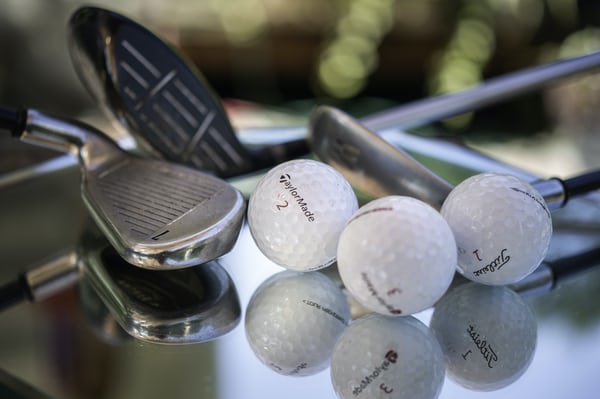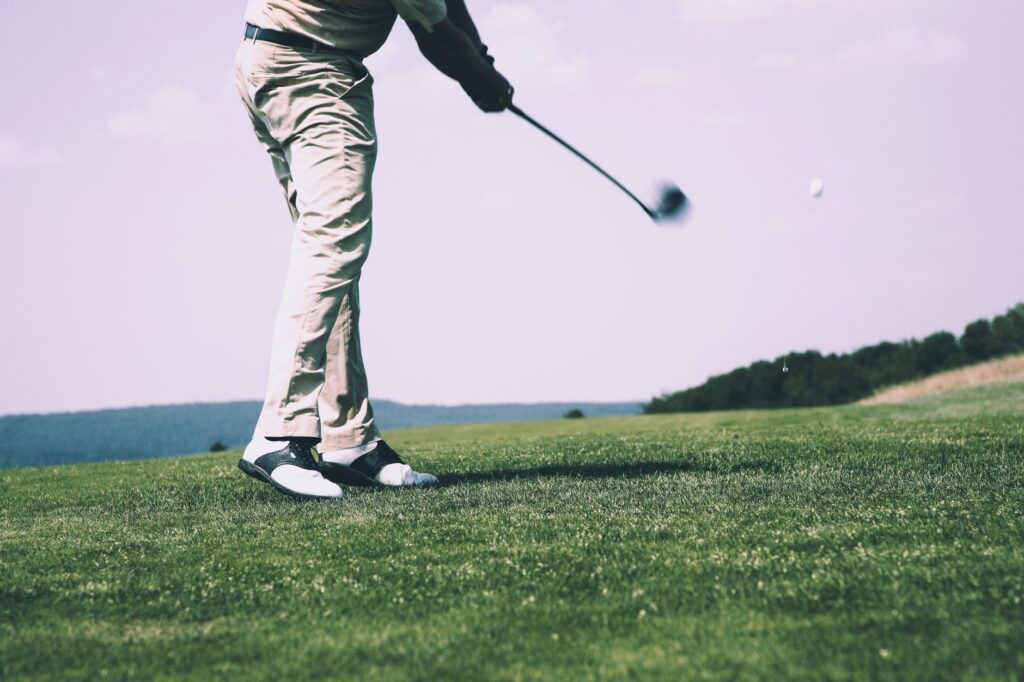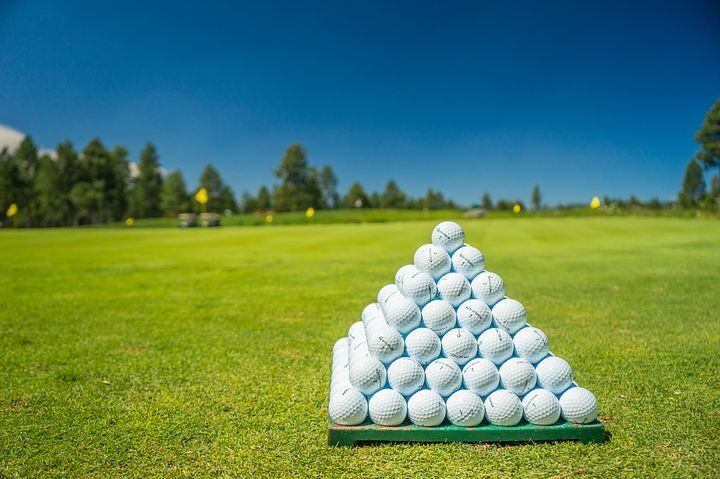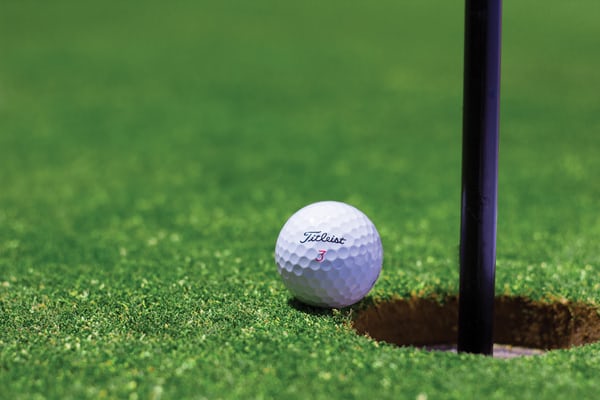What is Golf Ball Rollback
Are golfers getting too good for their own good? That’s the question at the heart of a heated debate in the world of professional golf right now. With advances in technology pushing balls to fly farther and straighter than ever before, some critics say the sport is in danger of losing its challenge and excitement. That’s where the proposed golf ball rollback comes in. In this article, we’ll dive into the controversy and explore what golf ball rollback means for the future of professional golf.

Golf Ball Rollback: Explained
Golf ball rollback refers to a proposed reduction in the distance that golf balls can travel. Also called Bifurcation, this refers to the idea of creating separate equipment rules for elite golfers, resulting in a different set of regulations for professional and recreational play.
The United States Golf Association (USGA) and The Royal and Ancient Golf Club of St. Andrews (R&A) have proposed this change to address concerns about the increased distances that modern equipment can produce.
The Distance Insights Report, published in 2020, found that professional golfers were hitting the ball much farther than they did in the past. As a result, golf courses are being forced to lengthen and expand, which has financial implications for golf clubs and the sport as a whole. In response, the USGA and R&A proposed a new “Model Local Rule” that would limit the distance a golf ball can travel.
However, this proposal has sparked a debate in the golf community, with some arguing that it will have a negative impact on the sport, while others believe that it is necessary to preserve the integrity of the game.
The Pros and Cons of Golf Ball Rollback
The Pros
One of the main arguments in favor of golf ball rollback is that it would address the growing concern that golf courses are becoming obsolete. According to Mike Whan, CEO of the USGA, “Golf courses are being overwhelmed by the distances that the golf ball is now travelling. This is not just a problem for the professional game, but for golf as a whole.”
Another argument in favor of golf ball roll back is that it would make the sport more challenging, particularly for professional golfers. In recent years, there has been a perception that golf has become too easy, with modern equipment allowing players to hit the ball further and straighter than ever before. By reducing the distance that golf balls can travel, golf would become more challenging, which could make the sport more exciting for fans.

The Cons
One of the main arguments against golf ball roll back is that it could have a negative impact on the sport. Professional golfers may struggle to adapt to the new equipment, which could result in a decrease in the quality of play. Golf ball rollback could also lead to a decrease in interest in the sport, as fans may find the game less exciting if players are unable to hit the ball as far as they once could.
Another argument against golf ball rollback is that it would stifle innovation in the golf industry. Manufacturers invest millions of dollars in research and development to create new and better equipment, and a rollback could make these investments worthless. Golf ball rollback could also make it more difficult for recreational golfers to enjoy the sport, as they would be unable to hit the ball as far as they once could.
Professional Golfers and Officials Weigh In
Many professional golfers have voiced their opinions on the proposed golf ball rollback. Rory McIlroy, one of the world’s top golfers, has come out in favor of the proposed changes, stating in an interview with No Laying Up, “If [playing at a competitive disadvantage on the PGA Tour] gives me the best chance to succeed at the major championships and feel as prepared as I possibly can be, then that’s what I would do.”

However, not all professional golfers agree with McIlroy. Bubba Watson, for example, has expressed his opposition to golf ball roll back, stating in a tweet, “I love golf the way it is. Changing”
On the other hand, opponents of the golf ball rollback argue that limiting distance will stifle innovation and hinder the progress of the game. In addition, some players argue that limiting distance will have a negative impact on their careers, especially those who rely on their distance off the tee.
One of the most vocal opponents of the proposed changes is professional golfer Bryson DeChambeau. DeChambeau, who is known for his long drives and innovative approach to the sport, has argued that the proposed changes would unfairly penalize players like him who have built their game around distance.
“I don’t think it’s the right way to go, personally,” DeChambeau said in a press conference. “I think there are other ways to go about it. I think it’s about skill, it’s about understanding how to play the game and how to maneuver your way around the golf course. I think taking distance away is just not the right way to do it.”
Who Is In Favor Of Golf Ball Roll Back?
In Favor of Roll Back Change:
- Jack Nicklaus: “For all concerned, for the ball to come back to bring a lot of things back into perspective is very important for the game of golf.”
- Gary Player: “Cut the ball back 50 yards, only for the pros. Not for members, let the members play with anything, let them keep the long putter against their chest, don’t stop them playing, they are two different games.”
- Paul McGinley: “Personally I would hold the top level where it is now, absolutely make it stringent so they can’t go any further in terms of technology but at the same time I would open up the doors for amateurs to use different, and the technology companies to create different, new ways, new golf clubs and new balls that will help the amateur play a game that is incredibly difficult.”
- Fred Ridley: “We hope there will not come a day when the Masters or any golf championship will have to be played at 8,000 yards. If there is no action taken, for whatever reason, then we need to look at other options with regard to our golf course and what we can do to continue to challenge these great golfers and maintain the design integrity that was initially adopted by Mr [Bobby] Jones and Mr [Alister] MacKenzie].”
- Patrick Cantlay: “Theoretically, the golf ball needs to go shorter.”
- Mike Whan: “We do not think that distance is necessarily good for the game.”
Against Roll Back Change:
- Eddie Pepperell: “Regardless of what happens with the technology, there seems to have been a paradigm shift in golf whereby the key factor, certainly in terms of ambition, is to hit the ball further and further.”
- Justin Thomas: “I don’t think there’s any reason or it’s not necessary at all to change the golf ball.”
- Jon Rahm: “Why is everybody so obsessed with distance?”
- Lee Westwood: “I think golf’s in a good place, I don’t know what everybody is panicking about.”
What Do Golf Officials Think of Golf Ball Roll Back?
Despite these opposing views, the USGA and R&A have taken steps towards implementing the golf ball roll back. In March 2022, they released an “Area of Interest” communication which specified a set of research topics relating to potential Equipment Rule changes intended to address the findings from the Distance Insights Report and the Conclusions from the Distance Insight Project: Implications of Hitting Distance in Golf.

One of the topics of interest was the investigation of an increase to the launch speed used to determine conformance to the Overall Distance Standard (ODS) that reflects the clubhead speeds of the longest hitters of the golf ball. The launch speed would be determined using a clubhead speed of at least 125 mph. In addition, use of optimum conditions of angle and spin in conjunction with this higher clubhead speed will be evaluated as part of this investigation.
What Other Measures Are They Considering?
Another topic of interest was narrowing the focus of the research topics presented in the 1 February 2021 Area of Interest communication, specifically in the context of potential Model Local Rules, to explore the reduction of the spring-like effect in drivers and changes to the Moment of Inertia (MOI) limit of drivers to enhance the reward of a central impact.
As golf’s stakeholders continue to tease an equipment rollback, professional golfers and fans alike wait with bated breath to see what the future holds for the sport. While the golf ball roll back proposal has garnered both support and opposition, one thing remains certain: the debate over distance gains in professional golf is far from over. So can you golf with the existing equipment or will you have to change up to new balls and clubs – only time will tell!

In addition to these initiatives, the USGA and R&A are also considering changing the testing method for golf balls. The proposed changes involve using optimized launch conditions to determine a ball’s conformance to the Overall Distance Standard (ODS), which specifies the maximum distance a golf ball can travel. Currently, the testing method involves using the actual launch conditions of the ball. The proposed changes aim to address concerns that golf balls are flying too far, leading to longer courses and increased costs for maintaining them.
What Do Equipment Manufacturers Think of Golf Ball Roll Back?
The proposed changes have met with opposition from players and equipment manufacturers. Many argue that limiting the distance golf balls can travel would make the sport less exciting and negatively impact players’ abilities to compete. Additionally, some have pointed out that it is unfair to penalize equipment manufacturers for producing better technology.
TaylorMade have gone on the record with the following statement in response to Golf Ball Roll Back plans:
“The USGA and R&A recently announced a proposal to create a Model Local Rule where highly skilled golfers must use a different golf ball from 2026 onwards.
“This will introduce bifurcation into our sport, meaning that you – the golfer – will play with different equipment than the professionals.
“We believe a large part of golf’s appeal is this underlying sense of: “I can do that, too.”
“And using the same equipment as the pros gives us a more accurate feel for how talented these players are.
“Most of us will never know what it’s like to play in Madison Square Garden, throw a touchdown in the Super Bowl, or score the game-winning goal in a World Cup final, but we can go to St. Andrews, walk across the Swilcan Bridge and for a moment feel what it’s like to be a professional. Walk in their shoes, play the same courses, and use the same equipment. It’s all part of why we love this sport.
“The USGA and R&A have provided a window in which all manufacturers can provide feedback on this proposal and its potential impact.
“As we absorbed this announcement and tried to understand the why, as well as the impact, all of our conversations came back to one place – you, the golfer. We want your voice to be heard, so please, let us know what you think.
“We invite you to be part of the conversation and to be part of our feedback to the USGA and R&A”
ToylorMade Spokeperson
Golf Ball Roll Back: Titleist Response
Titleist have also responded to the proposed Golf Ball Roll Back debate in a full statement from David Maher, President and Chief Executive Officer, Acushnet Company published on their website.

The summary of this is that The Acushnet Company believes that this golf ball bifurcation would break the unification between professional and recreational play and add confusion to the game. Furthermore, the proposed guidelines could disadvantage some players over others, and multiple versions of golf ball models in the market would be confusing to golfers. They will actively participate in discussions with the governing bodies, professional tours, PGA Professional organizations, amateur associations and federations, and golfers, to contribute to the continued growth of the game.
“Golf is an aspirational sport, and we believe at its very best when equipment and playing regulations are unified. Golf’s health and vibrancy are at historically high levels…we will actively participate in this conversation with the governing bodies, worldwide professional tours, PGA Professional organizations, amateur associations and federations, and golfers, in an effort to contribute to the continued enjoyment and growth of the game.”
David Maher, President and Chief Executive Officer, Acushnet Company
Despite the opposition, the USGA and R&A are pressing ahead with their proposals. The new rules are set to come into effect in 2023, giving players and equipment manufacturers time to adjust. It remains to be seen how the changes will affect the sport, but it is clear that they will have a significant impact on the game and the way it is played at the highest levels.
Conclusion
The proposed changes to golf ball technology have sparked a fierce debate within the sport, with supporters and opponents on both sides. While some argue that the changes are necessary to preserve the integrity of the game, others contend that they would stifle innovation and negatively impact players’ abilities to compete. Ultimately, it will be up to the USGA and R&A to decide whether to proceed with the changes, and it remains to be seen how they will affect the sport in the years to come. Regardless of the outcome, it is clear that the debate over golf ball technology will continue to be a topic of discussion in the golf world for years to come.
Fun Golf Equipment Advice
At Fun Golf, we believe that there’s more to golf than just the equipment you use. That’s why we’ve created content that covers a range of topics related to the sport such as the Golf Ball Rollback debate. Here are some of our other articles that we think you might find helpful:
- Golf Insurance: Golf can be an expensive sport, and accidents can happen. That’s why we’ve put together a guide to golf insurance, which can help protect you from unexpected costs. Check out our article on golf insurance to learn more.
- Cheap Golf Rangefinders: Rangefinders can be a valuable tool on the golf course, but they can also be expensive. We’ve researched and tested some of the best affordable rangefinders on the market, and put together a guide to help you find the right one for your needs. Check out our article on cheap golf rangefinders to learn more.
- Beginner Golf Balls: If you’re just starting out in golf, choosing the right balls can be confusing. We’ve reviewed some of the best golf balls for beginners, taking into account factors such as distance, spin, and feel. Check out our article on beginner golf balls to learn more.
- Best Golf Trolleys: Carrying your golf bag can be tiring, which is why many golfers opt for a trolley. But with so many options on the market, it can be difficult to know which one to choose. We’ve researched and tested some of the best golf trolleys, and put together a guide to help you make an informed decision. Check out our article on best golf trolleys to learn more.
By exploring these topics, you can improve your overall golfing experience and make the most out of your time on the course. And as always, we at Fun Golf are committed to providing you with accurate and helpful information to help you enjoy the sport to its fullest.




